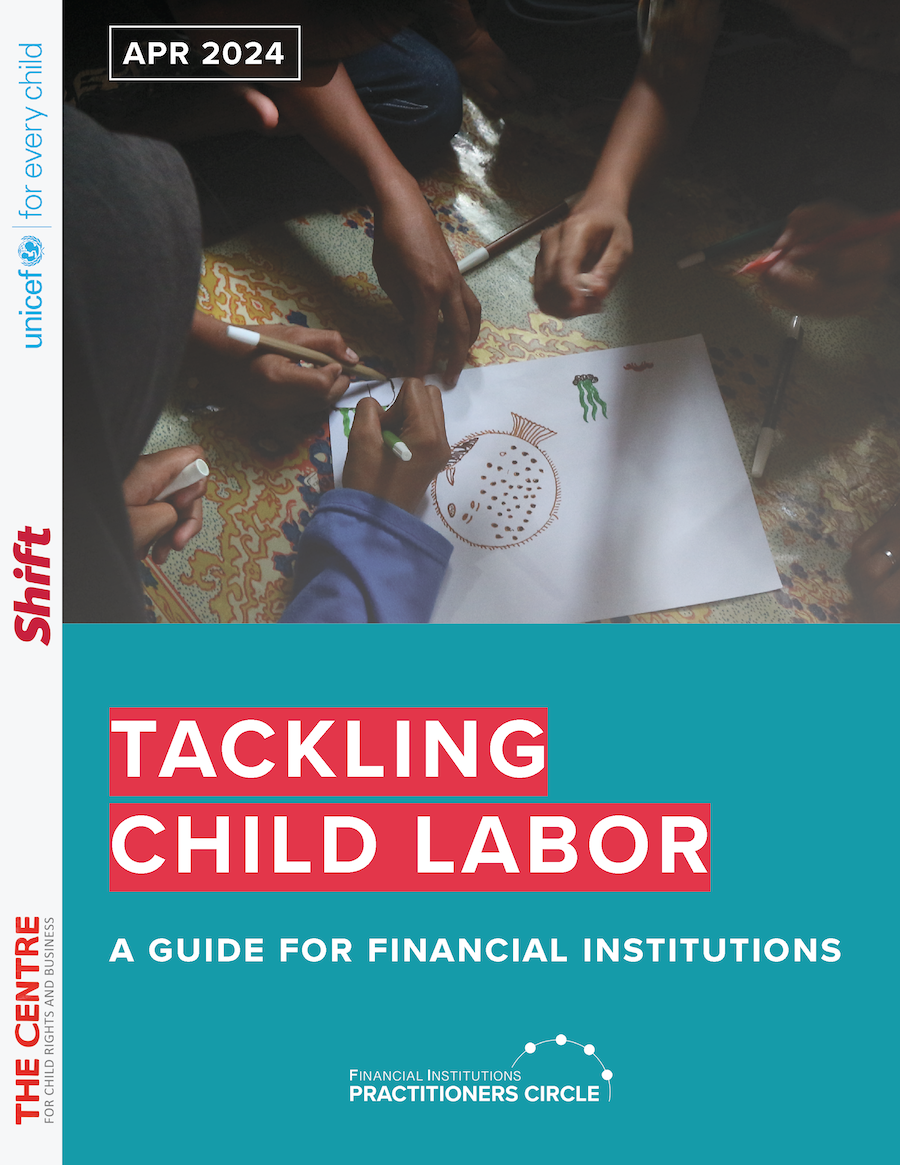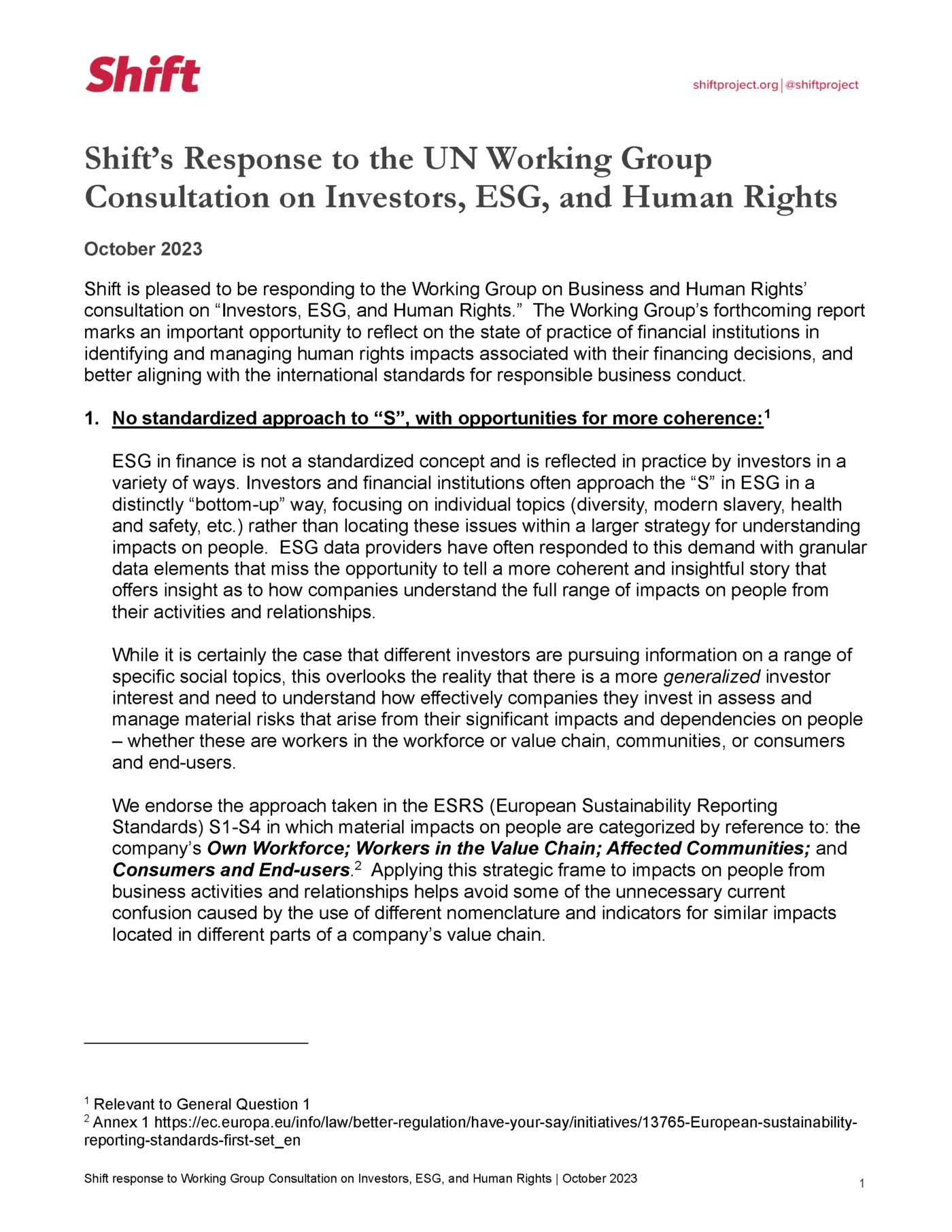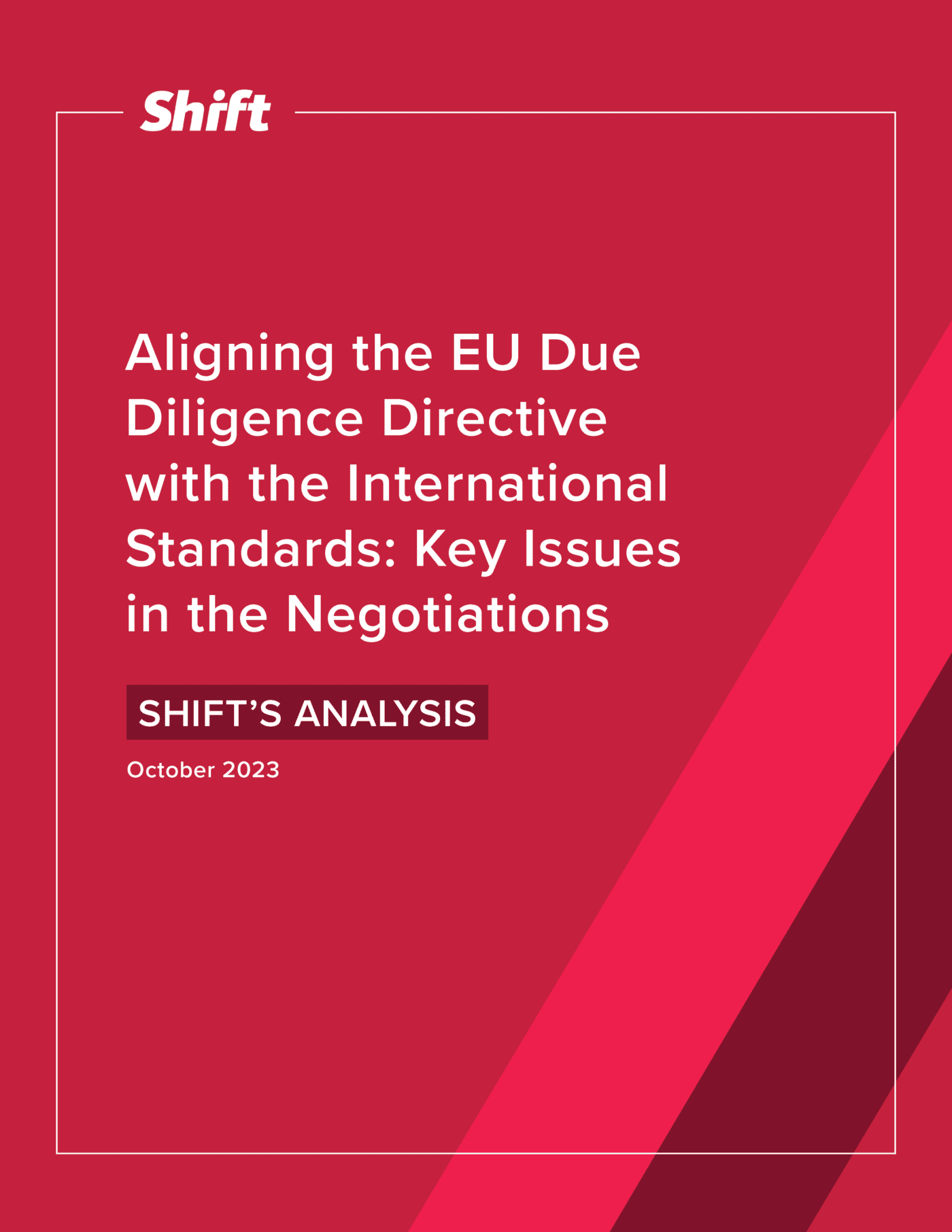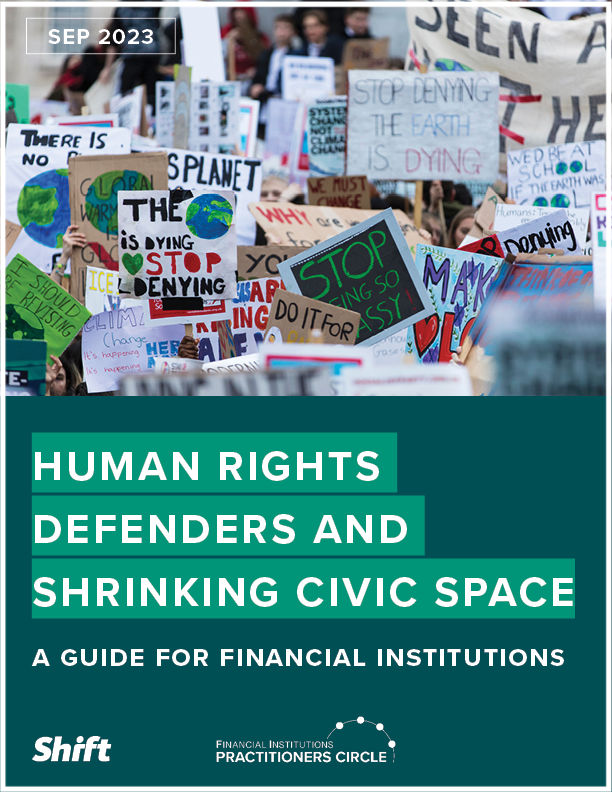Learn more about our work with financial institutions on the Guiding Principles
Export Credit Agencies (ECAs) act as intermediaries between governments and a country’s exporters to provide export financing of various kinds (either direct financial support or credit insurance and guarantees).
For over a decade, the OECD has promoted recommendations for ECAs with respect to the environmental and, more recently, the social due diligence that they should conduct on applications for export credits. Known as the “Common Approaches”, these recommendations apply to all OECD member states and are intended to guide the work of their official ECAs. While the Common Approaches were updated in 2012 to recognize the relevance of the Guiding Principles to the provision of export credits, they did not provide any further guidance on how human rights due diligence relates to ECAs’ existing environmental and social due diligence.
Now for the first time, in the revised Common Approaches published by the OECD Council on April 7, 2016, there is an explicit statement that ECAs should screen all applications covered by the Common Approaches for severe human rights risks (para 6). A risk could be severe because of the gravity of the harm, its widespread nature, the extent to which the impacts can be remediated, or the general operating context (footnote 2). Where screening identifies a high likelihood of such risks, ECAs should further assess them, including potentially by complementing their existing environmental and social due diligence with human rights due diligence (paras 8 and 14).
This update starts to recognize the changed environment since 2012. This includes the fact that leading ECAs have been updating their policies and practices to integrate a human rights lens into their existing due diligence processes by focusing on the severity of risks to people, in line with the UNGPs.
Other financial institutions tend to face similar challenges about integrating human rights into existing due diligence. Shift has supported a number of financial institutions to strengthen their approaches in this area, including the Norwegian ECA (GIEK) and the Dutch, German and UK Development Finance Institutions. We have also explored these issues with the International Finance Corporation in relation to the IFC’s own Performance Standards. Our report on identifying and assessing high risk human rights circumstances, drawing on all this work, can be found here.
In relation to the OECD, also see:



